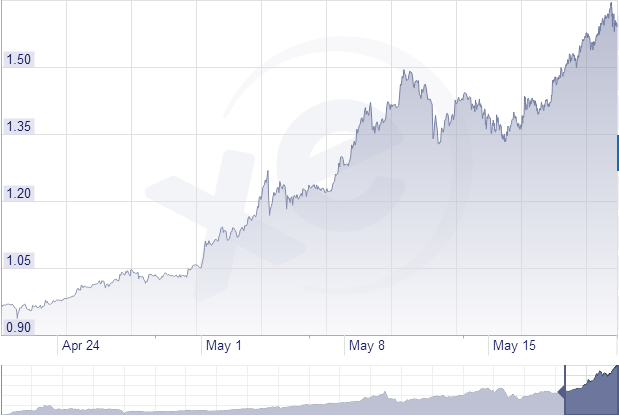
The world economy is in a real crisis, currency prices are falling and rising hysterically, millions are losing their jobs, countries are collapsing and companies are stepping up. What about creating an alternative economy dedicated only to the digital world? In fact this is basically the idea of a Bitcoin .
Beethoven began as an intellectual experiment. In 2009, an unknown programmer published a paper suggesting that a hypothetical coin solved many of the problems surrounding a currency that existed only on the Internet. The bulk of the challenge was to create a currency without having to resort to a central bank to issue currency and track operations. The programmer, who used the pseudonym Satoshi Nakamoto, was able to provide a formula in which transactions would be peer-to-peer, a technical term that meant direct interaction between one user and another without a broker, rather than a virtual bank.
In the real world we need central banks to issue money. Think of the dollar, the euro, the pound and the yen. It's no different. We need a central bank to print the money, and the bank controls how much money is printed as needed.
Coin currencies are produced using a complex calculation called mining, where the computer subtracts very complex complex calculations, which can be solved only by using many devices for many users, or high-efficiency devices, and the degree of difficulty of those calculations automatically so that no Only one process can be resolved every ten minutes. In one operation, 50 new houses are produced.
If your PC can solve that process in less than 10 minutes, congratulations to you, you are now the new owner of 50 coin coins, but it is not that simple.
What users do is that they participate in groups called Pools where people can share their computers and abilities to participate in calculations, and they distribute the profit - if any - to the participants in those pools and if you are very lucky you can get one or less Currencies after a time of "mining", knowing that in any case the system will not produce more than 21 million currency in all its operations, which guarantees the value of the currency.
Of course, you can share that process by creating a Bitcoin Wallet, reading some information and downloading a program that turns your computer into a diligent mining process, and with luck you may be able to get some coins.
But what next? What can you do with that money that really does not exist?
The exchange of money as mentioned above takes place through what is known as "peer to peer" where there is no third party, there is a market now for the so-called Mint. Gox, where you can buy coin currencies in exchange for real currencies (like dollar, euro or other). You can also buy things, some of them default (such as domain domains) and some real like some sites that now accept a coin coin to buy real products.
Hackers hacked some of BitQueen's user wallets and managed to turn their accounts into other accounts, and even managed to make users' machines work for them at other times.
Bit Quinn has become a haven now in what is known as the Dark Web Dark Web, where they use a system known as Tor Tor, which can hide their identities and dealing in the currency is not traceable, making their operations impossible to penetrate and control
As for personal experiences, in a previous report, a Hungarian woman named 33-year-old Judith Whelan, who designed pet accessories and persuaded her husband, the computer designer, to accept coins, said she had achieved more success.
"I sold 24 rings and 13 coins using the currency of Petcone over the past few months," she wrote, "and the first one came to me at 42, which was worth about $ 40 at the time, but now it's about $ 40." 2011, but now the $ 680 is at least $ 1360000.
This graphic shows the price of the Coin bit compared to gold

Although there is no viral spread among Internet users at first, there are many sites and companies that are now accepting this way to pay money, such as Wordpress, Alexa and the Internet Archive, as well as sites like Wikileaks that already accept donations Coin Currencies.
According to Wikipedia, Germany is the only country to have officially recognized the currency as a form of electronic money, so the German government considered it can tax the profits achieved by companies dealing with "Petkwin", while individual financial transactions remain tax free.
In Canada, the Espresso Café in Vancouver, British Columbia, hosted the world's first ATM for the virtual Coin House coin, which allows its traders to convert to the local currency.